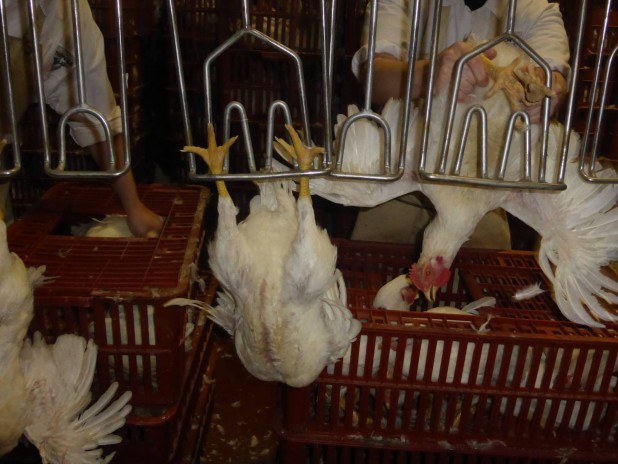Animal welfare improvements at German poultry-slaughterhouse

This
winter, Eyes on Animals inspected a poultry-slaughterhouse in Germany.
The laying-hens and turkeys were
removed from their transport crates and had their legs placed in
shackles and left hanging upside down. The shackle-line transported them
over an electric waterbath where the birds´ heads were immersed
in the water to render them finally unconscious. We saw many problems.
The birds experienced painful pre-shocks because their wings touched the
waterbath before they were properly stunned. Live shackling
and remaining hanging upside down also created a lot of pain and
extreme fear, especially for the turkeys that can easily weigh 12kg and
more. We also saw turkeys that had not been properly stunned.
Fortunately
the managers of the plant were also concerned and open to our
suggestions. Following our advice the slaughterhouse is now installing a
device that supports the breast and the head in order to take some
of the weight off of their legs of the birds. This device is also
designed so that the heads of the birds be submersed fully in the
waterbath, without the risk of them facing the cutting knife while still
sentient. Electrical pre-shocks will no longer take place and the
stress and pain by being shackled upside down will be reduced. In the
long run, we are also recommending that they completely phase out
the use of the electric water bath and replace it with a more humane
method of stunning the birds (read below). As long as the demand for
chicken and turkey meat is so high, we will continue doing this
sort of work to at least reduce as much suffering as possible quickly.